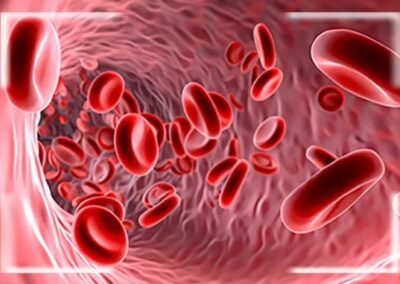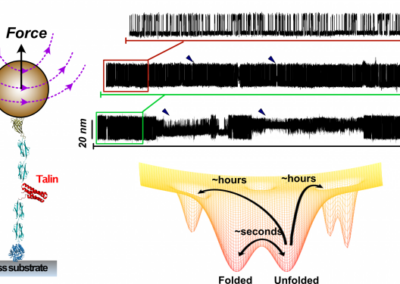Dr. Rafael Tapia-Rojo received his bachelor’s degree in Physics from the University of Zaragoza in 2011 and his MSc in Biophysics from the University of Barcelona in 2012. In 2016, he completed his PhD in Physics at the University of Zaragoza, where he worked on developing theoretical and computational models to investigate a range of biological problems, including DNA-protein interactions and protein folding. Following his PhD, Rafael joined the laboratory of Prof. Julio Fernandez at Columbia University as a Postdoctoral Researcher, where he developed and applied single-molecule magnetic tweezers instrumentation to study the mechanisms of protein folding under force, in particular of force-sensing proteins such as talin. In late 2020, Rafael moved to King’s College to work with Prof. Sergi Garcia-Manyes, where he was awarded a King’s Prize Fellowship to continue his work on the nanomechanics of the talin protein. In 2023, he started as a Lecturer in Biological Physics in the Biological Physics & Soft Matter Group in the Physics Department.



